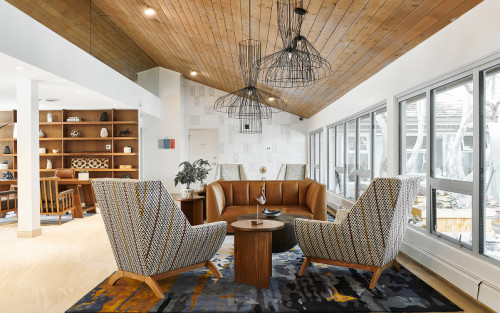








Homewood Ravensview
Verified Center
This provider's information has been quality-checked by Recovery.com's Research Team for accuracy and completeness, including center verification through appropriate third-party organizations.
Treatment Focus
This center treats substance use disorders and mental health conditions. You'll receive individualized care catered to your unique situation and diagnosis, learn practical skills for recovery, and make new connections in a restorative environment.
Primary Level of Care
Offering intensive care with 24/7 monitoring, residential treatment is typically 30 days and can cover multiple levels of care. Length can range from 14 to 90 days typically.
Treatment Focus
This center treats substance use disorders and mental health conditions. You'll receive individualized care catered to your unique situation and diagnosis, learn practical skills for recovery, and make new connections in a restorative environment.
Primary Level of Care
Offering intensive care with 24/7 monitoring, residential treatment is typically 30 days and can cover multiple levels of care. Length can range from 14 to 90 days typically.
Provider's Policy
Please contact our intake team to learn more about treatment costs.
Homewood Ravensview
Homewood Ravensview
About Homewood Ravensview
Homewood Ravensview offers compassionate, expert treatment for depression, anxiety, trauma, addiction, and co-occurring conditions. They deliver evidence-based, medically-led, private inpatient treatment services with a typical length of 9 weeks. Minutes from Victoria, B.C. atop a mountain called LÁU,WELNEW (meaning ‘place of refuge’), Ravensview provides a serene 28-acre forested location for privacy. This world-class facility features spacious guest rooms with ensuite bathrooms and 180-degree views of the mountains and ocean.
Modern Treatment with Over a Century‘s Experience
Ravensview is part of Homewood Health, a nationally renowned mental health organization with over 140 years of experience delivering private, medically based treatment services for mental health, addiction, and co-occurring disorders. They work closely with the Homewood Research Institute to incorporate research and clinical innovations that enhance treatment and improve outcomes. Specialized care and program planning begins with an extensive one-on-one assessment to identify issues and prioritize treatment plans, onsite withdrawal management and detox if required, and proven modalities including cognitive behavioural therapy (CBT), dialectical behaviour therapy (DBT), psychotherapy and cognitive processing therapy (CPT). Clients receive two weekly 1:1 sessions to support their individualized needs, and meet often for group sessions.
Specialized Programs for Life Stage & Lived Experiences
Ravensview offers dedicated programs that address the unique needs of adults, young adults, first responders, military, and veterans and incorporate a range of cognitive, dialectical, expressive, recreational, and pharmaceutical therapies. Their Integrated Chronic Pain Service is designed to treat not only chronic pain but also the complex interplay of mental health conditions that often accompany it. This physician-led, comprehensive program integrates medical, psychological, and physical therapies to provide clients with holistic care that addresses both the physical symptoms and psychological impacts of chronic pain. For clients with a history of treatment-resistant depression, Esketamine, an intranasal ketamine spray, may be an option recommended by the clinical team.
Recovery Management
Homewood Ravensview ensures clients have the ongoing support they need to manage and sustain a healthy recovery, including professionally managed services that are focused on recovery management, reintegration into the community, and relapse prevention. Every client at Ravensview receives access to recovery supports including:
- Structured, personalized aftercare planning
- Plans for skill-building, reconnecting, and sustaining recovery
- Access to a recovery management support group
- Membership in the Homewood Alumni Program, a virtual support hub for ongoing learning
Additional, optional recovery management services may be available at an additional cost, including one-on-one counselling, step-down programming, and substance-use monitoring.
Upscale Lodging in a Rainforest
Throughout Ravensview, clients find thoughtfully crafted areas for journaling, personal reflection, or small group discussions. There is also a spacious entertainment lounge, horticulture garden, meditation labyrinth, and art therapy and music rooms. A professionally outfitted gym, a stretching and yoga nook, a pickleball court and tennis court, all provide opportunities for physical activity, along with opportunities to connect with nature through breathtaking forested walking trails and mountain hikes. Clients enjoy a fully renovated facility with spacious, well-appointed guest rooms, and private ensuite bathrooms. Accommodation options include semi-private rooms that house two clients per room, private rooms, and private suites. A dietitian and chef meet regularly to create delicious and healthy menus designed to meet the nutritional and dietary needs of our clients. Meals are served in a spacious dining area with treetop views of the surrounding forest, mountains, and ocean. Clients also have access to an assortment of snacks and drinks throughout the day.

Highlights from the Center
Highlights
These highlights are provided by and paid for by the center.
Therapeutic Location
Customized Treatment Plans
Holistic Approach
Addiction Recovery
Center Overview
Treatment Focus
This center treats substance use disorders and mental health conditions. You'll receive individualized care catered to your unique situation and diagnosis, learn practical skills for recovery, and make new connections in a restorative environment.

Homewood Ravensview
Insurance Accepted
Cash Pay Rates
Estimated Cash Pay Rate
Center pricing can vary based on program and length of stay. Contact the center for more information. Recovery.com strives for price transparency so you can make an informed decision.




Other Homewood Health Locations
Recovery.com Verified Listing
Recovery.com verified that the name, location, contact information and license to operate for this treatment provider are valid and up-to-date.

Accreditation Canada Accredited with Exemplary Standing
Recovery.com is an independent, third-party mental health resource. Verification does not imply endorsement and does not guarantee the quality of treatment services.
Meet Your Care Team

Deanna Brady
Vice President & General Manager
BHA, CHI, RPN

Dr. Jonathan Wan
Medical Director
MD, FRCP (C)

Christina Ford
Director of Nursing
Bachelor of Science in Psychiatric Nursing

Dr. Ben Mccutchen
Chief of Psychiatry

Craig Extine
Prime Therapist - Team Lead
MA, RCC

Dr. Kyla Roberts
Manager of Clinical Programs
PhD

Dr. Lucila Nerenberg
Addiction Psychiatrist
MD, FRCP (C), DABAM, CSAM
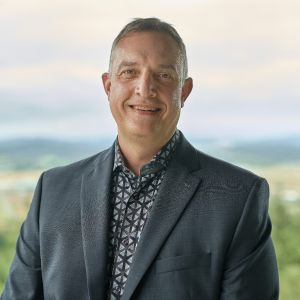
Dr. Johann Blignaut
Addiction Physician
MB, CH B, CCFP (AM)

Dr. Amanda Pitcher
Psychiatrist
BA, MD, FRCPC

Laura Thomlinson
Clinical Nurse Lead
RPN

Kelsey Barter
Charge Nurse
RN, BSCN
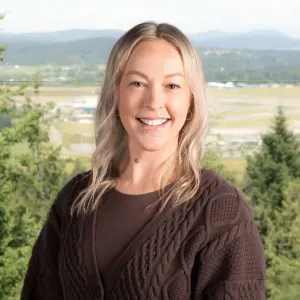
Lacey Carrigan
Charge Nurse
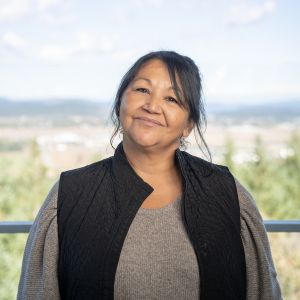
Sandrea Sampson
Cultural Knowledge Keeper

Gill Van Den Bussche
Prime Therapist
MA, CCC

Evan Quinn
Prime Therapist

Keanna Ewen
Prime Therapist
MSW/RSW (BC)

Brad Stubbert
Addictions Counsellor
CD, RSW, BSW

Jacob Houston
Associate Counsellor

Tammy Uppenborn
Occupational Therapist
MSCOT

Meaghan Schaefer
Occupational Therapist

Kirsten Davis
Music Therapist
MA, MTA, AVCM

Stefanie Denz
Art Therapist
MFA, BED, RCT
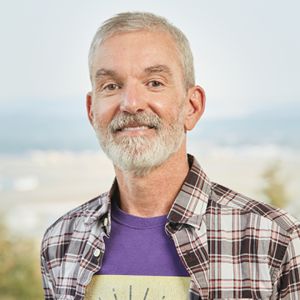
Cliff Thorbes
Horticultural Therapist
HTR, CCDP

Marianne Bloudoff
Registered Dietitian
BSC, RD

Melissa "Mo" Meyer-Webb
Food Services Manager

Wightson Nyirongo
Facilities Manager
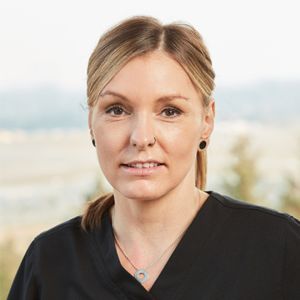
Pam Kidder
Housekeeping Team Lead
Your Care Options
Specializations
Anxiety
Anxiety is a common mental health condition that can include excessive worry, panic attacks, physical tension, and increased blood pressure.
Depression
Symptoms of depression may include fatigue, a sense of numbness, and loss of interest in activities. This condition can range from mild to severe.
Drug Addiction
Drug addiction is the excessive and repetitive use of substances, despite harmful consequences to a person's life, health, and relationships.
Young Adults
Emerging adults ages 18-25 receive treatment catered to the unique challenges of early adulthood, like college, risky behaviors, and vocational struggles.
Licensed Primary Mental Health
Some primary care providers offer mental health diagnosis and treatment. This can prevent patients from developing more serious conditions.
Post Traumatic Stress Disorder
PTSD is a long-term mental health issue caused by a disturbing event or events. Symptoms include anxiety, dissociation, flashbacks, and intrusive thoughts.
Trauma
Some traumatic events are so disturbing that they cause long-term mental health problems. Those ongoing issues can also be referred to as "trauma."
First Responders Program
Paramedics, police officers, firefighters, and others join in a specific First Responders program, usually focused on trauma, grief, and work-life balance.
Who We Treat
Co-Occurring Disorders
A person with multiple mental health diagnoses, such as addiction and depression, has co-occurring disorders also called dual diagnosis.
Young Adults
Emerging adults ages 18-25 receive treatment catered to the unique challenges of early adulthood, like college, risky behaviors, and vocational struggles.
LGBTQ+
Addiction and mental illnesses in the LGBTQ+ community must be treated with an affirming, safe, and relevant approach, which many centers provide.
Men and Women
Men and women attend treatment for addiction in a co-ed setting, going to therapy groups together to share experiences, struggles, and successes.
Midlife Adults
For adults ages 40+, treatment shifts to focus on the unique challenges, blocks, and risk factors of their age group, and unites peers in a similar community.
Veterans
Patients who completed active military duty receive specialized treatment focused on trauma, grief, loss, and finding a new work-life balance.
Treatment Services
Intensive Inpatient
The highest level of care, medically managed intensive inpatient services provides 24-hour nursing and physician care.
Detox
Detox fully and safely removes toxic substances from the body, allowing the next steps in treatment to begin with a clean slate.
Residential
In a residential rehab program, patients live onsite, with access to daily treatment and 24-hour care. An average stay is 30-90 days.
Approaches
Evidence-Based
A combination of scientifically rooted therapies and treatments make up evidence-based care, defined by their measured and proven results.
Holistic
A non-medicinal, wellness-focused approach that aims to align the mind, body, and spirit for deep and lasting healing.
Individual Treatment
Individual care meets the needs of each patient, using personalized treatment to provide them the most relevant care and greatest chance of success.
Therapies
1-on-1 Counseling
Patient and therapist meet 1-on-1 to work through difficult emotions and behavioral challenges in a personal, private setting.
Meditation & Mindfulness
A practiced state of mind that brings patients to the present. It allows them to become fully aware of themselves, their feelings, and the present moment.
Trauma-Specific Therapy
This form of talk therapy addresses any childhood trauma at the root of a patient's current diagnosis.
Mindfulness Therapy
This ancient practice can be mental, emotional, and even spiritual. In meditation, you focus your attention on the present moment without judgement.
Art Therapy
Visual art invites patients to examine the emotions within their work, focusing on the process of creativity and its gentle therapeutic power.
Expressive Arts
Creative processes like art, writing, or dance use inner creative desires to help boost confidence, emotional growth, and initiate change.
Horticultural Therapy
Gardening can be both meditative and inspiring. This therapy encourages social, emotional, and physical recovery.
Conditions We Treat
Grief and Loss
Grief is a natural reaction to loss, but severe grief can interfere with your ability to function. You can get treatment for this condition.
Anger
Although anger itself isn't a disorder, it can get out of hand. If this feeling interferes with your relationships and daily functioning, treatment can help.
Anxiety
Anxiety is a common mental health condition that can include excessive worry, panic attacks, physical tension, and increased blood pressure.
Burnout
Burnout entails mental and physical exhaustion, and leads to a severe lack of fulfillment. This condition is often caused by overwork.
Chronic Pain Management
Long-term physical pain can have an affect on mental health. Without support, it can also impact your daily life and even lead to addiction.
Depression
Symptoms of depression may include fatigue, a sense of numbness, and loss of interest in activities. This condition can range from mild to severe.
Gambling
Excessive, repetitive gambling causes financial and interpersonal problems. This addiction can interfere with work, friendships, and familial relationships.
Post Traumatic Stress Disorder
PTSD is a long-term mental health issue caused by a disturbing event or events. Symptoms include anxiety, dissociation, flashbacks, and intrusive thoughts.
Self-Harm
The act of intentionally harming oneself, also called self-injury, is associated with mental health issues like depression.
Substances We Treat
Alcohol
Using alcohol as a coping mechanism, or drinking excessively throughout the week, signals an alcohol use disorder.
Benzodiazepines
Benzodiazepines are prescribed to treat anxiety and sleep issues. They are highly habit forming, and their abuse can cause mood changes and poor judgement.
Chronic Relapse
Consistent relapse occurs repeatedly, after partial recovery from addiction. This condition requires long-term treatment.
Co-Occurring Disorders
A person with multiple mental health diagnoses, such as addiction and depression, has co-occurring disorders also called dual diagnosis.
Cocaine
Cocaine is a stimulant with euphoric effects. Agitation, muscle ticks, psychosis, and heart issues are common symptoms of cocaine abuse.
Drug Addiction
Drug addiction is the excessive and repetitive use of substances, despite harmful consequences to a person's life, health, and relationships.
Ecstasy
Ecstasy is a stimulant that causes intense euphoria and heightened awareness. Abuse of this drug can trigger depression, insomnia, and memory problems.
Heroin
Heroin is a highly addictive and illegal opioid. It can cause insomnia, collapsed veins, heart issues, and additional mental health issues.
Languages
Aftercare
Care Designed for Your Needs
Personal Amenities
Amenities
Special Considerations
First Responders Program
Paramedics, police officers, firefighters, and others join in a specific First Responders program, usually focused on trauma, grief, and work-life balance.
Young Adults Program
Programs for young adults bring teens 18+ together to discuss age-specific challenges, vocational and educational progress, and successes in treatment.
Activities
Yoga
Yoga is both a physical and spiritual practice. It includes a flow of movement, breathing techniques, and meditation.
Off-Site Amenities

Learn More About the Center
The Intersection of Sexual Identity & Mental Health
Read about intersectionality as an approach to develop a greater understanding of sexual identity and mental health.
Navigating Men’s Mental Health Challenges & Offering Support
Learn the notable differences in men’s mental health experiences.
What to Look for in Youth & Teen Mental Health
Find out some of the most common signs of mental health disorders before 18 years of age.
Motivating Someone with an Addiction
Read the top 5 tips for encouraging someone to pursue treatment.
What people are saying
Treatment
4.5
Accommodations
5.0
Food & Nutrition
5.0
Value
4.5
Morgan
Treatment in 2024 • (60 days) • Reviewed 08/21/25
Former Client
•Police Officer





